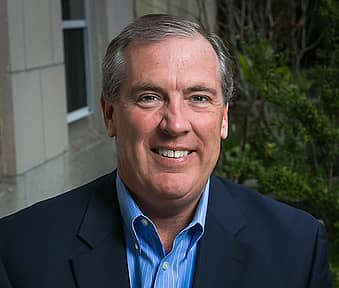Pre-Professional vs. Liberal Arts Options for College Applicants
Susie’s been certain she wants to become a physical therapist since her own PT painstakingly rehabbed her back on to the soccer pitch after ACL surgery.
Meanwhile, her twin 17-year-old brother Sam loves biology – but also can’t live without Spanish. Or music.
So while Susie is pursuing a specific, pre-professional track – over school break I’ve suggested she visit Ithaca’s PT program – Sam will head over to nearby Hobart William Smith to check out their broad-based liberal arts program.
Which route is right for your teenager – pre-professional or liberal arts?
Pre-Professional Pragmatism: Practical candidates point out preparing for a specific profession while in college will pay tangible dividends in the job market. They research content-specific programs in areas like physical therapy, nursing, or aerospace. We work with students from across the country and around the world, and over the years we’ve seen the two most popular pre-professional routes to be technology and business.
All Business, All the Time: Starting freshman year, business students gleefully drop many requirements in the Humanities to focus on Accounting 101 and Management Basics – and get an internship as quickly as possible. For Boston-area options, think Babson and Bentley.
Institute of Technology or Tech Lite: Budding engineers, meanwhile, can take a deep dive at an MIT or Wentworth Institute of Technology and surround themselves with like-minded (and mainly-male) STEM–heads. Or they can declare an engineering major in a broader university setting like a Tufts or BU and still complete some general education requirements for a bit of a broader base.
Liberal Arts: A Broader, Skill-Based Approach: I have to explain to a lot of our international families, whose home-based universities are exclusively pre-professional, that in the US lots of colleges expect a teenager to be undecided in their studies. (Here’s a short video Yale Explo filmed of me explaining this “undecided phenomenon.”) And we have learned from the National Center for Education Statistics that about 80% of students change their majors. (I trudged off to college in Maine at age 17 as an all-in Econ major, and, thanks to a Calc professor who looked and taught like a Puritan and a charismatic pair of lit professors, came out as a double major in English and French at age 21.) I also have to explain to our international friends “Liberal Arts” isn’t just for Democrats, nor are they just for artists. I actually prefer the term “Liberal Arts and Sciences.”
Harvard School of Education’s 21st century skills: The beauty of the liberal arts is the broad-based, cross-curricular approach that allows students to explore a range of passions. So students at Wellesley or Harvard can earn a degree as an Econ major and Spanish minor, or as a Political Science and Italian double major and art minor. And above and beyond the content, they refine the core skills of communication, collaboration, creativity, critical thinking and technical literacy – all proclaimed by Harvard as critical contemporary skills.
The Myth of Liberal Arts being “Unmarketable”: Top employers value the Renaissance men and women produced by liberal arts schools since they can think on their feet and adapt to jobs that don’t yet exist. The Wall Street Journal, in an article devoted to the value of the liberal arts degree, quotes Tech leader and Reverb founder David Kalt as saying, “Looking back at the tech teams that I’ve built at my companies, it’s evident that individuals with liberal arts degrees are by far the sharpest, best-performing software developers and technology leaders. Often these modern techies have degrees in philosophy, history, and music – even political science.” And here’s the paradox: while contemporary pundits proclaim the death of liberal arts in these uncertain economic times, the soft skills of the liberal arts can be viewed by many as more valuable than ever to manage today’s complex global problems.
So which is right for your child– liberal arts or pre-professional? Encourage your son or daughter to engage in the process by exploring colleges and visiting a range of campuses. It’s often wise to pursue both paths – and realize a teenage mind is a work in progress and that can – and should – twist in different directions.
As for Susie, I won’t be surprised if she gets to Ithaca and is blown away by their communications department and switches majors since she wants to become a broadcaster, or if Sam ends up studying abroad in Barcelona to satisfy a Spanish major, and trades his interest in bio for business.


